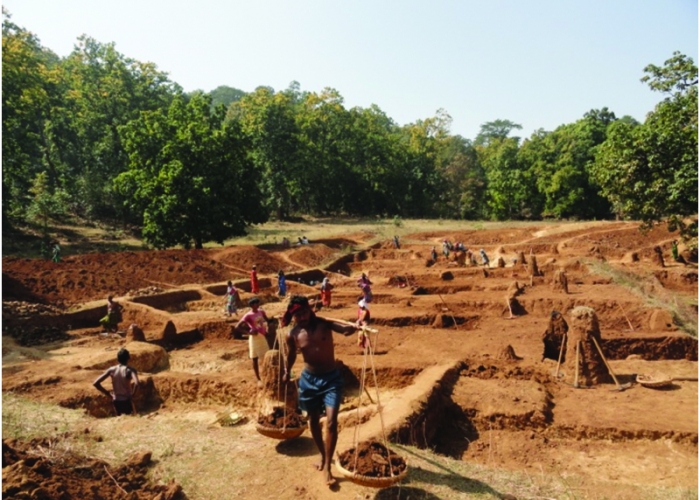 |
Detail Description:
Western Odisha has long been a major area for migration because of its highly unequal land distribution and high levels of poverty among landless and marginal farmers. A combination of erratic monsoons and unstable livelihoods has made farmers of the region adopt migration as a survival strategy. Due to absence of any effective sources of livelihood, this hefty advance money comes as a big allurement (pull factor) and a coping for the people to repay their old debt and get into the cycle of another debt which push the people into bondage and agony merely for survival.
Strategies Adopted
To address the issue, State Government has initiated a project in 11 blocks of Balangir and Nuapada districts where issue of distress migration is rampant. A Detailed Project Report (DPR) was developed by for 3 years which has been operational since July 2013. In these 11 blocks, as per State Government decision, 150 days of employment per year are provided to households prone to distress migration. Budgetary allocation has been made to meet the cost towards additional 50 days of employment. An advance employment guarantee card has been issued to all interested migrant households. The crux of the project has been creation of assured employment and timely payment through focused interventions in MGNREGS. The project has been designed in such a way that most of the families prone to distress migration would be engaged during the lean period for at least 20 days in each month under MGNREGS. Now, the project has extended to 20 blocks covering 4 districts of western Odisha.
Impact
In Nuapada and Balangir districts, about 15000 migrant households have been provided employment during 2015-16. It was noticed that household engagement has increased from 0.91 lakh to 1.38 lakh households from 2012-13 to 2015-16 respectively. Average person days increased from 42 person days per household in 2012-13 to 51 person days per household in 2015-16. Person days generated increased by 31.07 lakhs i.e. from 38.63 lakh person days in 2012-13 to 69.70 lakh person days in 2015-16. |

